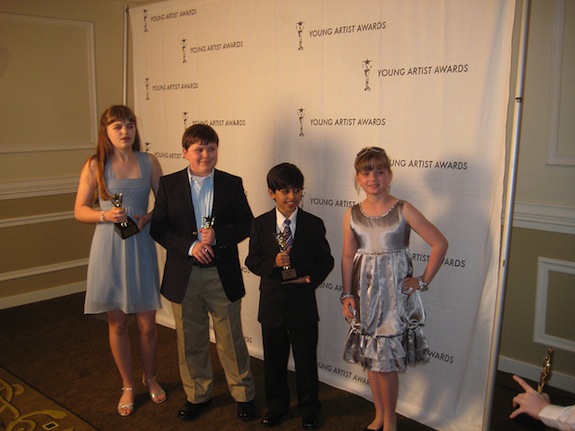The Real Reasons Child Stars Lose Their Minds (According to Matilda’s Mara Wilson)
All the odds are stacked against you once you enter showbiz as a kid

Image: PipersPicksTV
In 1996, when Mara Wilson played Matilda, in the movie Matilda, she had already appeared in Mrs. Doubtfire and Miracle on 34th Street. This was all before she was 10. And she understands why child stars go crazy.
The pattern is predictable, and it started long before Lindsay Lohan. From Jackie Coogan to Erin Moran of “Happy Days” to Amanda Bynes, decades of examples show that successfully transitioning from child star into functioning adult isn’t easy. Wilson says that really, all the odds are stacked against you once you enter showbiz as a kid.
First, she writes, your parents are often your worst enemy. Some parents push their kids to earn money that they’ll then pocket. Other parents simply want fame through their kids. And parents can’t really fight against the big names of Hollywood. Wilson remembers one incident where a reporter asked her (at age 7) what she thought of Hugh Grant getting busted for prostitution:
If he had been arrested for something like defacing a Lion King poster or stealing bouncy castles, I might have cared. But while I knew he’d been arrested, I didn’t understand what for and didn’t feel comfortable answering. My father called the station the next day to suggest that they, you know, not talk to a child about soliciting sex. But he was rebuffed, and the complaint was ignored. Even then, as a kid, I knew that parental power was gone.
Another reason, Wilson says, that kids get totally messed up is that they get all the attention in the world, all the money and presents and hugs and things they could ever want. Then, that’s taken away. Once they’re not “cute” anymore, the presents and hugs and love go away. There’s a fancy name for this—”the hedonic treadmill”—and Mental Floss describes it as “the depressing-but-apparently-true notion that humans adapt to new levels of happiness-and-cool-stuff (and unhappiness-and-bad-stuff) by leveling out at a set point in the middle of the happiness spectrum.” Child stars wind up setting their baseline level of happiness-and-cool-stuff pretty high, because their early lives are full of happiness and cool stuff. Adults have this problem, too, but it’s harder on kids, says Wilson:
Adults know that infatuation is fleeting, but kids don’t understand this. A year in a kid’s life seems like an eternity, and they think anything happening now will happen forever. Years of adulation and money and things quickly become normal, and then, just as they get used to it all, they hit puberty — which is a serious job hazard when your job is being cute.
And the process of transformation from a cute kid to a regular person can’t even happen normally. Teens rebel. That’s part of their job as teenagers. But child star teens can’t do that without every website on the internet writing about it. Wilson gives this analogy:
Having to live up to your fan base is a little like having to deal with a million strict parents who don’t actually love you. They reward you for your cuteness and cleverness, but are quick to judge and punish. And they do not want you ever to grow up. How do you react? The way any sullen teenager does: You get resentful, and as soon as you have the freedom, you act out.
And, of course, by now these former child stars have a lot of money to spend on acting out. Which is why they wind up getting into not just regular trouble, but expensive trouble. And when they try to right themselves, there’s only one way many of them see to turn, which is back to the industry that made them act out in the first place. Many actors and actresses who start young don’t feel like they know how to do anything but act. So they attempt again to win back their fans, inevitably fail (because the task is impossible) and rebel again.
Perhaps the only hope for child stars is to replace them with robots—or at least CGI characters who can handle all kinds of psychologically traumatic events.
More from Smithsonian.com:
Childhood Memories of Charles Lindbergh
Determining Who Made the Most Movies
/https://tf-cmsv2-smithsonianmag-media.s3.amazonaws.com/accounts/headshot/Rose-Eveleth-240.jpg)
/https://tf-cmsv2-smithsonianmag-media.s3.amazonaws.com/accounts/headshot/Rose-Eveleth-240.jpg)